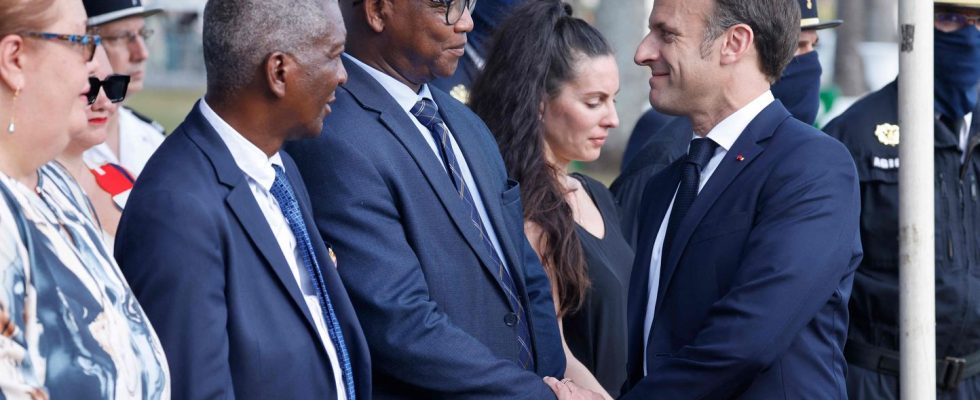After a first visit in October 2017, where he said he was not “Santa Claus”, the head of state returned to Cayenne. This little sentence, released six months after a general strike which paralyzed this territory, is anchored in the collective memory of the Guyanese who voted 60% for Marine Le Pen. On the agenda this time: security, the environment and opening up. We take stock of the issues of this visit.
Fight against insecurity
In 2023, crime in this overseas territory will reach a record level, with 20.6 homicides per 100,000 inhabitants, almost 15 times more than the national average. Around sixty homicides were recorded last year. The president mentioned the “100% control” system which “made it possible to drastically reduce drug trafficking” at Cayenne airport. According to him, the police and gendarmes intercept 30 to 40 kilos of drugs there every week.
Emmanuel Macron will also pay tribute this Monday to Arnaud Blanc, major of the GIGN, killed a year ago to the day during an illegal gold panning operation. The opportunity for the Head of State to return to Operation Harpie, “marked by its effectiveness” but mourned by the loss of several soldiers in recent years.
Development of agriculture
Fishing and agriculture are among the sectors suffering in this territory of 300,000 inhabitants. The Head of State says he wants to encourage the development of local agriculture, to reduce Guyana’s food dependence (96% of chicken consumed there is imported). Emmanuel Macron said he “share the population’s impatience” and promised “rapid decisions”. Likewise, he promises measures to “fight against illegal fishing”.
The Head of State also intends to “enable sustainable exploitation of our tropical forest,” with “responsible and sustainable gold mining activity.” Pleading for a “French-style ecology”, Emmanuel Macron promises a “simplification and adaptation of standards”, currently considered too burdensome by local stakeholders.
Opening up and autonomy
Local elected officials also intend to put the subject of opening up on the table: Guyana has only 400 km of national roads and the liquidation of Air Guyane in 2023 has deprived isolated communities of air service. Progress on the status of the island is also expected. After the agreement reached between the government and elected officials on the special status of Corsica, many local elected officials are calling for autonomy for Guyana. The central power must “grant us the same status as Corsica”, insists the left-wing president of the Territorial Collectivity of Guyana (CTG), Gabriel Serville, after threatening to boycott the presidential visit, just like the elected separatists.

